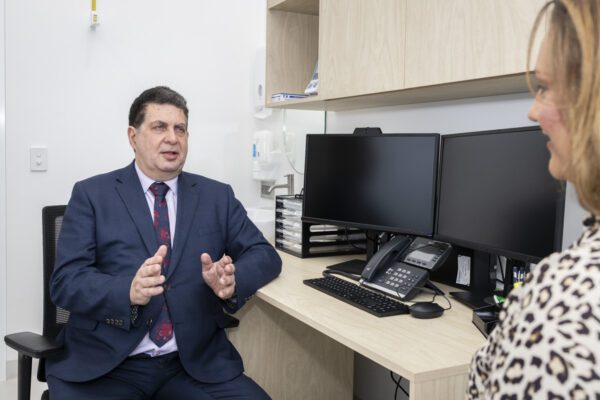Some of us at some stage in our lives have been jokingly described as OCD, or we’ve teasingly told our friends they have OCD.
“Your house is so clean!”, “You are so organised!” or “You get the same coffee from the same place every day …. you’re so OCD!” are some of the jests we hear in everyday life.
Although these little quirks and rituals give us a feeling of control in our lives, they are not OCD symptoms by themselves.

Obsessive-Compulsive Disorder (OCD), is a time-consuming, distressing mental health disorder that interrupts everyday life, making it near impossible to maintain a healthy, balanced life.
Around 2% or more than half a million Australians currently have Obsessive-Compulsive Disorder (OCD) and an additional 257,000 or 1% of Australians will personally deal with the treatable, mental health disorder at some stage in their lives.
OCD is recognised as the fourth most common psychiatric disorder in the world after phobias, substance abuse and major depression, and people living with OCD have a higher risk of having another mental illness such as depression and bipolar disorder.
At the very minimum, OCD takes an hour each day away from people living a normal life.
OCD generates overwhelming fear, anguish and worry caused by obsessions and the compulsive need to manage these obsessions.
Related: Do I have OCD? The 4 Types of OCD
Obsessions
Obsessions are unwanted, intrusive, repetitive thoughts, urges, images, and ideas that interrupt everyday thought processes, creating anxiety and stress. These obsessions make it almost impossible to concentrate and focus on tasks and responsibilities.
Compulsions
Compulsions are the repetitive behaviours people feel compelled to perform in a very specific way, or a specified number of times, in order to manage or respond to the obsessive thinking.
Often compulsions and rituals don’t deal directly with the obsessions, but only release the stress and anxiety connected with the obsession for a limited time. People with OCD do not gain a sense of pleasure from their rituals, only a non-permanent relief from the anxiety.
In a way that is similar to addiction, the OCD brain becomes hardwired to make it near impossible not to engage in these activities.
Who has OCD?
Both adults and children can experience OCD symptoms, although a 2009 study suggests that symptoms are more severe if they begin in childhood. People with OCD symptoms are more at risk of developing substance abuse as they use drugs and/or alcohol as a coping mechanism to self-manage their OCD.
Can you treat OCD?
The positive news about OCD is that it is a treatable mental health disorder through a multidisciplined approach of medication and specific types of psychotherapy.
Almost all types of OCD are associated with overlapping psychological disorders.
According to Stanford Medicine, comorbidity rates for different types of OCD and various mood disorders are:
- 31% have major depression;
- 11% have social phobia;
- 8% have an eating disorder;
- 7% have a simple phobia;
- 6% have panic disorder; and
- 5% have Tourette’s Syndrome.

Help for OCD
An important thing to remember about OCD is that help is available, and things can improve with a multidisciplined approach of medication and specific types of psychotherapy.
At The Banyans Health and Wellness, treatment for OCD is based on a multidisciplinary methodology, personalised for each guest.
The combination of medical support and psychiatric care, psychological and emotional counselling, coupled with nutritional support and physical exercise assists individuals to relieve symptoms while learning effective coping strategies.
For further support and information about an OCD recovery treatment program at The Banyans, submit a contact form below or call our team on +61 1300 BANYAN (1300 226 926).





